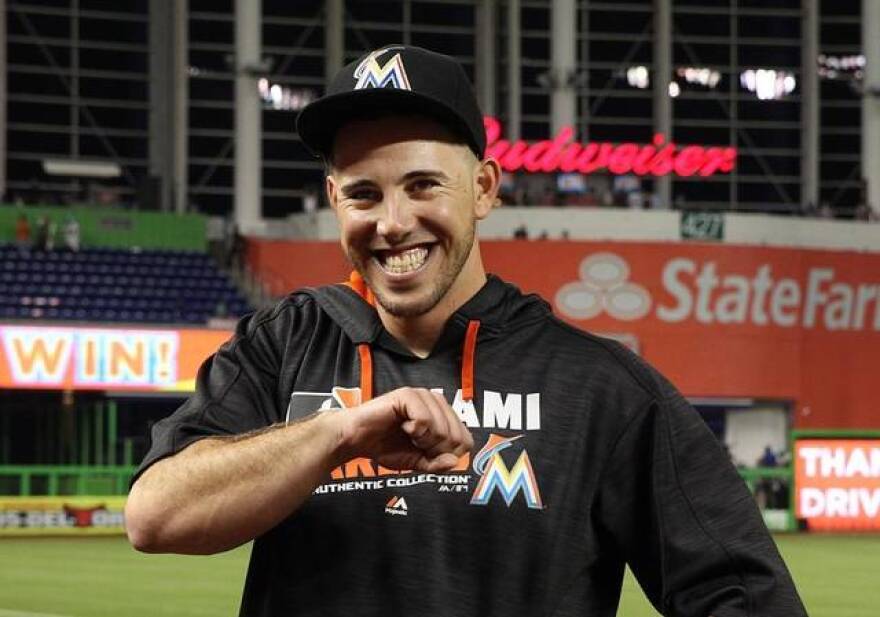It was eight months ago that Marlins ace Jose Fernandez died in a boating accident on the jetty of Government Cut near South Beach.
The tragedy was a sad irony considering Fernandez's story of making the treacherous journey from Cuba by sea. This Sunday at 7 p.m. WLRN TV will air JDF16, a Univision-produced documentary about Fernandez. David Adams is one of the film's producers. He talked about the process of making the film, especially so soon after Fernandez’ death.
ADAMS: It was obviously a very big concern for us, especially with his family, because we knew that really we couldn't tell the film without the family's participation. So the strategy we adopted was to wait and be patient and leave the people who were truly grieving, the people closest to him, to the very end of the process, which we figured would be about six months.

One of the more poignant moments in the film was when Fernandez bought his boat. He got the boat when he was rehabbing after a certain type of elbow surgery. As his mother says in the film, it became a sort of therapy for her son. What's it like telling a story that you already know what's going to happen and you come across this moment of foreshadowing - you see the boat?
This [the boat] was just a huge part of Jose's life. It was not strange for him to be out there on the water at 3 a.m. in the morning. He knew that stretch of water like the back of his hand. That was where he went after a game or on off days to relax. That was interesting that he liked going out on the boat at 3 a.m. Because, who’s out on the on the water at 3 in the morning? Well, Jose did it a lot.
When you're putting this film together, what was the thought process in the structure? Because you had a combination of photos, videos, videos of Jose when he was sending these back to his grandmother in Cuba, and animation.
There were holes in the story that we just didn't have images to fit in. If you're making an hour-long documentary, the images that are not on-camera interviews they're a very important element to telling someone's story, to maintain the interest of the audience. And so the animation became a very powerful way of telling those moments. My favorite piece of animation was of his instructor Orlando Chinea in Tampa, who was the person who really molded Jose into the pitcher that he was. And he described to us this lovely concept that he has as a pitching coach, that a good pitcher has to have the balance of a ballet dancer, the mindset of a chess player and the aggression of a lion.
We knew early on that Fernandez had double the blood-alcohol level and cocaine in his system the night of the accident. People talk about his legacy. Do you think that information and that he was driving the boat hurts his legacy?

You can't ignore the way he died. It's obviously part of his legacy; it's kind of the last statement on his life. But, in baseball, it's the numbers. Baseball is a game; it's all about statistics. And if you look at statistics, his are extraordinary. One of the things that actually surprised me was talking to the real baseball experts and asking them how do they place Jose in the pantheon of baseball players and especially Cuban baseball players who've come out of Cuba. And I was astonished. They all agreed that he would have been a Hall of Famer.






